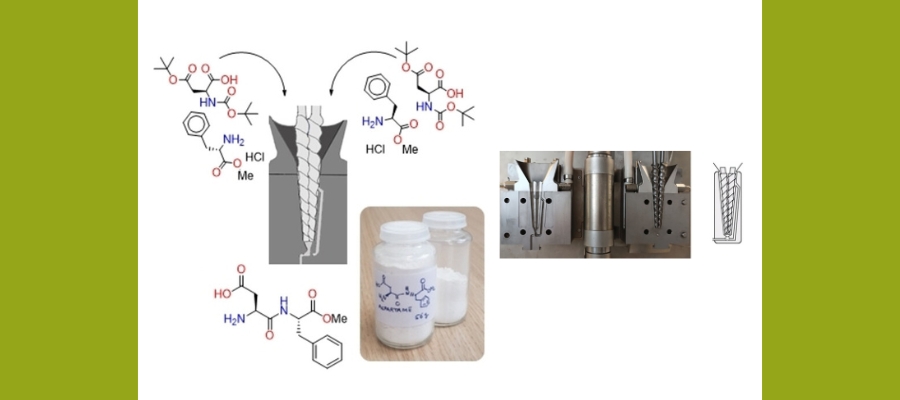The Latest Innovations in Research Peptides Production

Introduction
In the rapidly evolving field of biotechnology, research peptides have emerged as vital components in drug discovery, vaccine development, and diagnostic innovations. These small chains of amino acids play a crucial role in understanding cellular functions, testing therapeutic compounds, and creating targeted treatments for complex diseases. The increasing demand for high-purity and customized peptides has placed significant responsibility on peptide manufacturers, who are essential partners in advancing scientific progress. With their expertise, research laboratories gain access to reliable, high-quality compounds that drive innovation across pharmaceutical and clinical studies.
Cutting-Edge Technologies in Research Peptides Production
The production of research peptides has witnessed significant technological breakthroughs in recent years. Peptide manufacturers are increasingly adopting advanced synthesis techniques such as solid-phase peptide synthesis (SPPS) and liquid-phase peptide synthesis (LPPS). These methods allow the efficient assembly of long and complex peptides while maintaining high purity levels. Automated peptide synthesizers equipped with real-time monitoring systems ensure precision in amino acid coupling, minimizing human error and contamination risks.
Additionally, mass spectrometry and high-performance liquid chromatography (HPLC) have become standard in the quality verification of research peptides. Peptide manufacturers leverage these technologies to ensure batch-to-batch consistency, which is critical for research and clinical applications. These cutting-edge tools allow scientists to work with peptides that meet rigorous experimental requirements, strengthening confidence in study outcomes.
The Role of Peptide Manufacturers in Pharmaceutical and Clinical Research
The contribution of peptide manufacturers to pharmaceutical and clinical research cannot be overstated. By supplying highly purified research peptides, these manufacturers enable scientists to develop peptide-based drugs for treating cancer, metabolic disorders, and autoimmune diseases. Synthetic peptides are frequently used in preclinical and clinical trials to test drug efficacy, making their accuracy and quality paramount.
Moreover, peptide manufacturers often collaborate with pharmaceutical companies to create customized peptides tailored for specific therapeutic targets. The precision and expertise required in such processes highlight the crucial role of research peptides in shaping personalized medicine and targeted therapies. Without reliable peptide production, breakthroughs in immunotherapy, hormone regulation, and vaccine development would be significantly delayed.
Advances in Automation and Quality Control in Peptide Manufacturing
Automation has transformed the way peptide manufacturers produce research peptides. Modern manufacturing facilities use fully automated peptide synthesizers capable of handling multiple sequences simultaneously. This advancement not only increases production efficiency but also reduces costs, making high-quality peptides more accessible to research institutions.
Quality control is another area where innovation has reshaped peptide production. Real-time monitoring, digital data tracking, and stringent quality assurance protocols ensure that every batch of research peptides meets international standards. Peptide manufacturers now rely on advanced analytical tools such as nuclear magnetic resonance (NMR) spectroscopy and electrospray ionization mass spectrometry to verify molecular structures. These innovations guarantee that scientists receive peptides with consistent quality, which is crucial for reproducibility in experimental research.
Sustainability and Eco-Friendly Production in Peptide Manufacturing
As environmental awareness grows, peptide manufacturers are adopting sustainable and eco-friendly practices in research peptides production. Traditional peptide synthesis methods often involve the use of hazardous solvents and large volumes of chemical waste. In response, innovative manufacturers are turning to green chemistry approaches, including solvent recycling, biodegradable reagents, and water-based synthesis methods.
Eco-friendly manufacturing not only benefits the environment but also enhances the reputation of peptide manufacturers among biotech companies and research institutions. By prioritizing sustainability, the peptide industry demonstrates its commitment to responsible scientific advancement while meeting the increasing global demand for ethical production practices.
Future Trends and Predictions in Research Peptides
The future of research peptides production holds exciting possibilities. Peptide manufacturers are expected to explore artificial intelligence (AI)-driven predictive modeling to optimize peptide design and synthesis. Machine learning algorithms can predict the most stable peptide sequences, reducing production time and improving success rates in clinical applications.
Another promising trend is the development of cell-penetrating peptides for targeted drug delivery. These innovative research peptides will enhance the precision of therapeutic treatments, particularly in oncology and genetic disorders. Peptide manufacturers are also likely to invest more in continuous-flow synthesis technology, which promises faster production with reduced environmental impact.
With ongoing innovations, peptide manufacturers will remain essential partners in driving biotechnology forward, ensuring that scientists have access to cutting-edge research peptides for groundbreaking discoveries.
Summary
The rapid growth of biotechnology and pharmaceutical research underscores the vital role of peptide manufacturers in delivering high-quality research peptides. From advanced synthesis technologies and stringent quality control to eco-friendly production methods, these manufacturers are setting new standards for reliability and precision. Their contributions enable researchers to develop life-saving treatments, explore new therapeutic pathways, and enhance the overall understanding of human biology.
For research institutions and pharmaceutical companies seeking dependable sources of research peptides, partnering with experienced peptide manufacturers is essential. To explore premium-quality research peptides and learn more about innovative manufacturing solutions, visit Qingli Shangmao.
